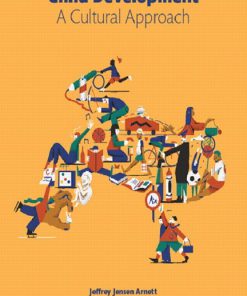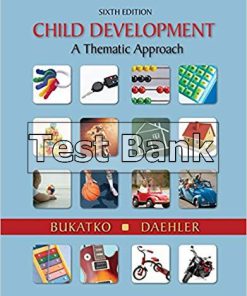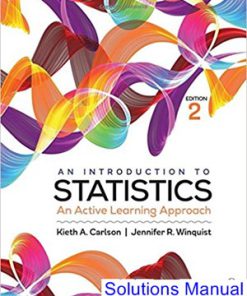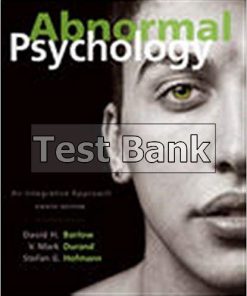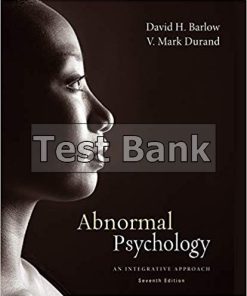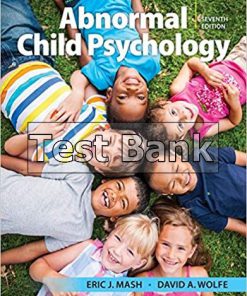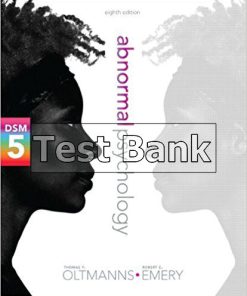Child Development An Active Learning Approach 3rd Edition Levine Test Bank
$26.50$50.00 (-47%)
Child Development An Active Learning Approach 3rd Edition Levine Test Bank.
You may also like
Instant download Child Development An Active Learning Approach 3rd Edition Levine Test Bank pdf docx epub after payment.
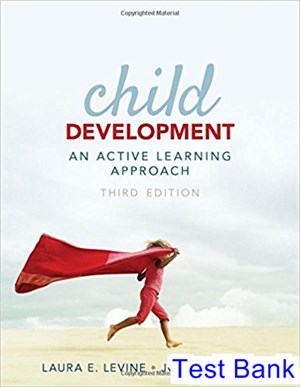
Product details:
- ISBN-10 : 9781506377858
- ISBN-13 : 978-1506377858
- Author:
Table of contents:
PART I. UNDERSTANDING DEVELOPMENT: WHY AND HOW WE STUDY CHILDREN AND ADOLESCENTS
1. Issues and Themes in Child Development
Why Study Child Development?
Understanding How Development Happens
Contexts of Development
Being a Smart Consumer of Information About Development
2. Theories of Development
Basic Principles and Applications
Theories of Child and Adolescent Development
The Impact of Biology and Culture on Child Development Theory and Research
3. How We Study Development
The Scientific Method
How Research Is Designed
Interpreting and Communicating the Results of a Study
Ethics in Research With Children and Adolescents
PART II. BIOLOGICAL BEGINNINGS AND PHYSICAL DEVELOPMENT
4. How Children Develop: Nature Through Nurture
The Study of Genetics and Behavior
Molecular Genetics: Chromosomes, Genes, and DNA
Genetic Disorders
Behavioral Genetics
The Interaction of Genes and Environment
5. Prenatal Development, the Newborn, and the Transition to Parenthood
Prenatal Development
Health and Risks in Pregnancy
The Birth Experience
Risks to the Newborn’s Health and Well-Being
The Transition to Parenthood
6. Physical Development: The Brain and the Body
Brain Development
Development of the Senses
Body Growth and Changes
Motor Development
Nutrition
PART III. COGNITIVE DEVELOPMENT
7. Theories of Cognitive Development
Piaget’s Theory of Cognitive Development
Theory of Core Knowledge
Vygotsky’s Sociocultural Theory of Cognitive Development
Information Processing
Comparing Four Theories of Cognitive Development
8. Intelligence and Academic Achievement
Defining and Assessing Intelligence
Variations in Intellectual Ability
Academic Achievement: Learning in the School Context
Group Differences in Academic Achievement
9. Language Development
Aspects of Language
Language and the Brain
Theories of Language Development
Stages of Language Development
Literacy: Reading and Writing
Bilingualism and Bilingual Education
Language Disorders
PART IV. SOCIAL AND EMOTIONAL DEVELOPMENT
10. Emotional Development and Attachment
Emotions: Universality and Difference
Temperament
Regulation of Emotions and Self-Control
Normal Emotions and Emotional Problems
The Development of Secure Attachment
Attachment Disorders
11. Identity: The Self, Gender, and Moral Development
Development of the Self-Concept
Development of Self-Esteem
Gender Identity
Ethnic and Racial Identity
Moral Identity
12. Social Development: Social Cognition and Peer Relationships
Social Cognition: Theory of Mind
Peer Relationships in Infancy and Early Childhood
Peer Relationships in Middle Childhood
Adolescents: The World of Peers
Bullying, Cyberbullying, and School Violence
PART V. CONTEXTS FOR DEVELOPMENT
13. Families
What Constitutes a Family?
Family Roles and Relationships
Socialization in Childhood and Adolescence
Interventions for a Better Family Life
14. Activities, Media, and the Natural World
The Daily Lives of Children and Adolescents
Unstructured Time
Structured Time
The Role of Important Nonparental Adults
15. Health, Well-Being, and Resilience


